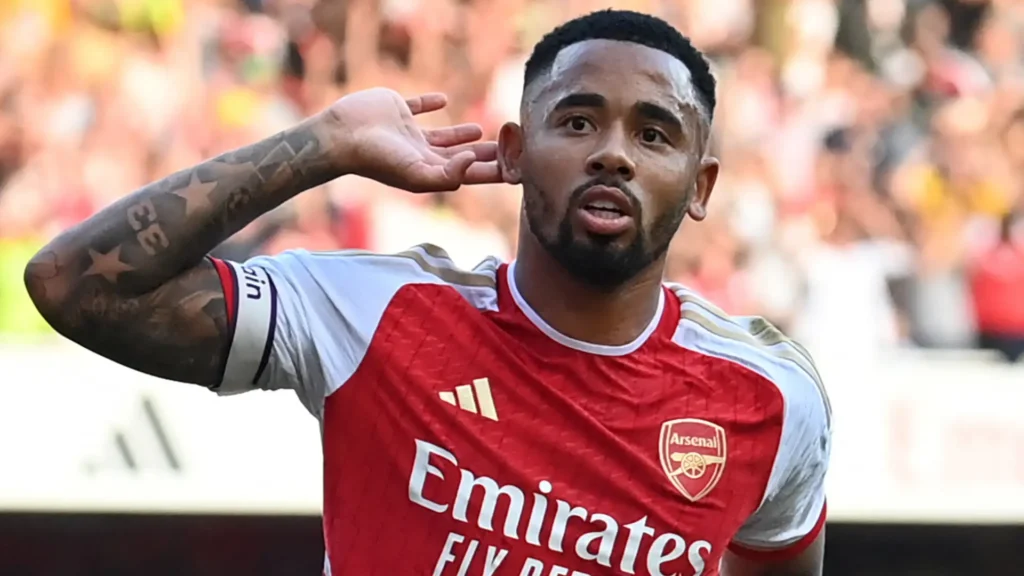
As Arsenal face the early hurdles of the 2024-25 season, the spotlight has inadvertently shifted to their forward line, where the injury to Gabriel Martinelli has spurred conversations about squad depth and player utilization. While the club remains cautiously optimistic about Martinelli’s recovery, his absence has highlighted the need for other forwards to step up, particularly Gabriel Jesus.
Jesus, who joined Arsenal with high expectations, has found his role somewhat diminished due to tactical shifts and the emergence of other talents. Initially, Jesus was seen as the dynamic forward who could unlock defenses with his pace and pressing. However, as the team’s strategy evolved, so did the expectations from its strikers. Consequently, Jesus has often found himself on the bench or playing in less central roles, which has not fully capitalized on his strengths.
Moreover, Arsenal’s transfer strategy has brought in new faces, further complicating Jesus’ place in the squad. With the acquisition of players who offer different dimensions, Jesus’ unique attributes seem less vital in the current setup. This shift has led to speculation about his future at the club, with reports suggesting that a parting of ways could be on the horizon in the summer of 2025.
Furthermore, Jesus’ performance statistics this season have been under scrutiny. Despite his work rate and pressing, his goal contributions have been somewhat underwhelming compared to his peers. This has been a point of discussion among fans and analysts alike, questioning whether Arsenal’s investment in him has yielded the expected returns.
Here is when Gabriel Jesus will leave Arsenal
In addition, the club’s ambitions for silverware and a robust challenge in the Premier League necessitate a squad that can adapt seamlessly to any situation. The injury to Martinelli is a case in point, where depth is not just desirable but essential. Here, Jesus’ inability to consistently fill the void has raised concerns about his long-term fit in Mikel Arteta’s vision for the team.
However, it’s not just about Jesus’ performances on the pitch. Off the field, his leadership qualities and influence in the dressing room are undeniable. Yet, football is a results-driven business, and Arsenal’s forward-thinking approach might require them to look beyond sentiment. Thus, the decision to potentially part ways with Jesus could be seen as a strategic one, aimed at refreshing the squad with players who fit the evolving tactical framework.
Moreover, the transfer market is always ripe with opportunities. For Arsenal, this could mean scouting for a forward who not only complements the existing squad but also aligns with the manager’s philosophy for the next phase of the club’s journey. This move might not only rejuvenate the forward line but also signal to the footballing world that Arsenal are intent on maintaining a competitive edge.
While Gabriel Jesus’ departure in the summer of 2025 is not set in stone, the current trajectory suggests that Arsenal might be preparing for life beyond him. This potential transition would be part of a broader strategy to ensure the team remains at the forefront of English football, adapting to challenges both on and off the pitch.





